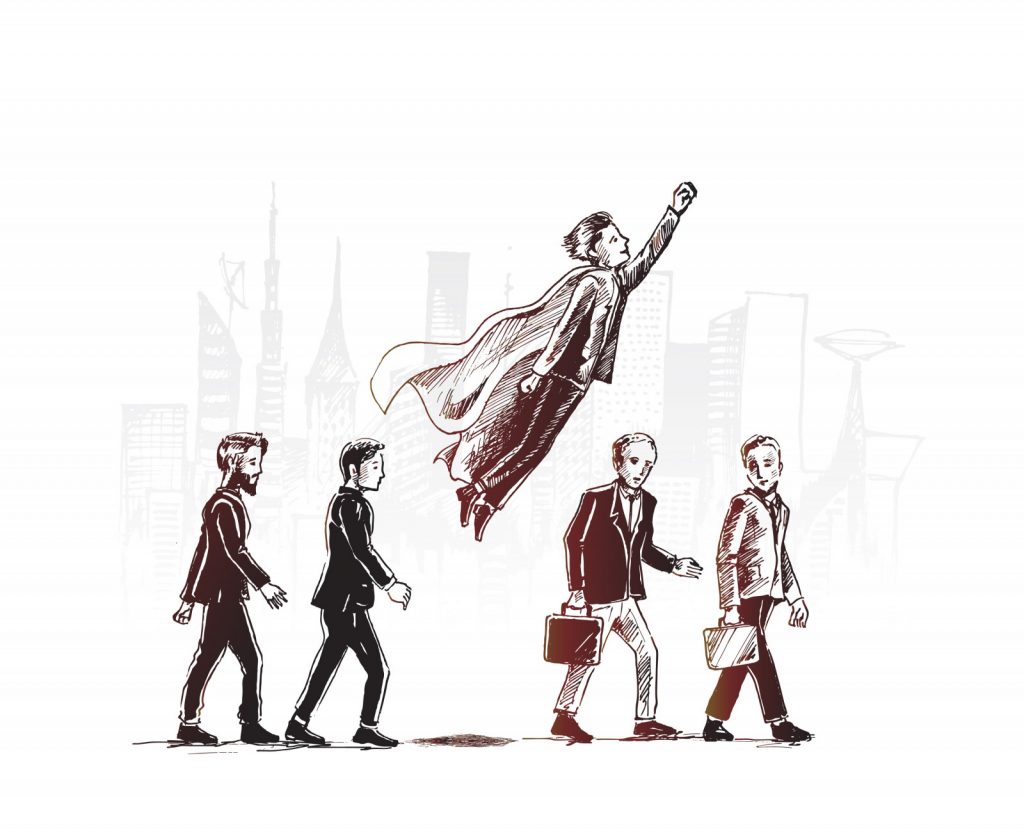The Batman Effect: The Intriguing Psychology of the Alter Ego
©️ Gencraft
Have you ever wished you could be someone bolder, braver, or more confident? Enter the concept of the alter ego, a second self that empowers you to tap into hidden potential. Psychologists have even identified a fascinating phenomenon called the “Batman Effect,” where adopting an alter ego unlocks a range of psychological benefits.
The Batman Effect: Unmasking the Alter Ego
An alter ego is a distinct personality you create, separate from your everyday self. It can be a fictional character, a stage persona, or simply a different version of you with amplified desirable traits. Throughout history, figures like Beyoncé’s Sasha Fierce or athletes like Coby Bryant’s Black Mamba showcase the power of alter egos in the creative realm. But the benefits extend far beyond performance.

A History of Duality: The Alter Ego Through the Ages
The concept of the alter ego has a surprisingly long and rich history, predating even superheroes! Here is a glimpse into its fascinating past:
Ancient Roots
The term itself was coined by the Roman philosopher Cicero in the 1st century BC. He used “alter ego” to describe a “second self” or a “trusted friend.” This suggests that the idea of an internal “other” has been around for millennia.
The Split Self Emerges
Fast forward to the 18th century, and we see a more scientific exploration of the alter ego. Franz Anton Mesmer, known for his theories on animal magnetism (a precursor to hypnosis), observed patients exhibiting distinct personalities under hypnosis. This ignited interest in the concept of a “split self,” paving the way for further psychological exploration.
Freud and the Seeds of the Unconscious
Sigmund Freud, the father of psychoanalysis, played a pivotal role in shaping our modern understanding of the alter ego. He saw its roots in early childhood development, where children often create imaginary companions to fulfill emotional needs. Freud believed that the alter ego could also represent repressed aspects of the personality.
The Rise of Analytical Psychology
Carl Jung, a student of Freud, further explored the concept. He proposed the idea of the “shadow,” an unconscious part of the personality containing repressed desires and instincts. The alter ego, in this view, could be a way to integrate these hidden aspects into a more whole self.

From Ancient Philosophy to Modern Psychology
The journey of the alter ego concept showcases humanity’s long-standing fascination with the complexities of the inner self. Today, psychologists see the alter ego not just as a quirk of the mind, but as a powerful tool for self-discovery and personal growth. By understanding it, we gain a deeper appreciation for the potential this “second self” holds within us all.
The Psychological Powerhouse: Benefits of an Alter Ego
The Batman Effect, coined by psychologist Ethan Kross, highlights the power of using an alter ego to navigate real-life challenges. Here is how it works:
1. Self-Distancing
By stepping outside your immediate self and viewing yourself through the lens of your alter ego, you create psychological distance. This allows for a more objective perspective, reducing anxiety and self-doubt in stressful situations.
An experimental study called What would Batman do? looked at how young children’s ability to think and solve problems is influenced by imagining things from different perspectives. They tested 3-year-olds and 5-year-olds by asking them to do activities while thinking about themselves in different ways. For example, they might imagine themselves as a character like Batman or think about themselves from a distance like looking at themselves from far away.

They found that both age groups did better on tasks when they thought about themselves from a distance compared to when they just thought about themselves normally. But the 5-year-olds improved more than the 3-year-olds when they imagined themselves from a different perspective. This suggests that as children get older, they get better at using different ways of thinking to solve problems. Therefore, the researchers concluded that self-distancing improves executive function in young children.
2. Enhanced Self-Control
Imagine your alter ego as the epitome of discipline and focus. By embodying this personality, you can harness your willpower to overcome temptations and improve self-control. There is another study called The “Batman Effect”: Improving Perseverance in Young Children that examined this issue. The researchers looked at how kids keep trying at a task even when it’s hard. They tested 4-year-olds and 6-year-olds by giving them a task they could do for 10 minutes.
However, they had the option to take breaks and play a fun video game. They found that the 6-year-olds kept trying for longer than the 4-year-olds. But what was interesting is that all the kids did even better when they pretended to be someone else, like a character such as Batman, rather than just thinking about themselves.
So, when kids imagined they were someone else or looked at themselves from outside, they worked on the task for even longer. This suggests that imagining themselves as someone else helps them keep going when things are tough.
3. Boosted Confidence
Stepping into the shoes of a confident alter ego allows you to tap into their perceived strengths. This temporary confidence boost can translate into real-world situations, leading to more assertive behavior.

4. Exploring Hidden Facets
Developing an alter ego can be a form of self-discovery. It allows you to experiment with different personality traits and behaviors, potentially revealing hidden aspects of yourself you can integrate back into your everyday persona.
5. Emotional Regulation
In a review, researchers delved into the idea of self-distancing and how it can play a crucial role in how we reflect on our emotions. They found that when we approach our feelings with a bit of distance, it can help us think about them in a healthier way. This process of self-distancing allows us to gain perspective and clarity, making it easier to navigate through our emotions.

Crafting Your Own Superhero: How to Create an Effective Alter Ego
The beauty of the alter ego lies in its flexibility. Here are some tips to craft yours:
Identify Your Goals: What aspects of yourself do you want to strengthen? Do you crave more confidence, creativity, or focus? Tailor your alter ego to embody those desired qualities.
Develop the Details: Give your alter ego a name, backstory, and even a signature outfit (optional!). The more detailed it is, the easier it becomes to inhabit that persona.
Practice Makes Perfect: Start by using your alter ego in low-pressure situations. Talk to yourself in the third person as your alter ego might, or visualize them tackling a challenge. Gradually incorporate this practice into more demanding situations.
The Alter Ego: A Tool for Growth
The alter ego is not about creating a completely separate identity. It’s about leveraging the power of imagination to unlock your true potential. By embracing the Batman Effect, you can harness the psychological benefits of self-distancing and tap into hidden strengths, empowering you to be the best version of yourself, even without a cape and cowl.

Ready to embark on your own hero’s journey? Craft your alter ego today and discover the power within!
You may also like: Emotional Intelligence: What It Means in Everyday Life


